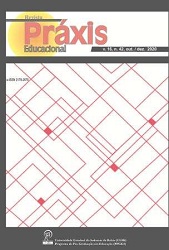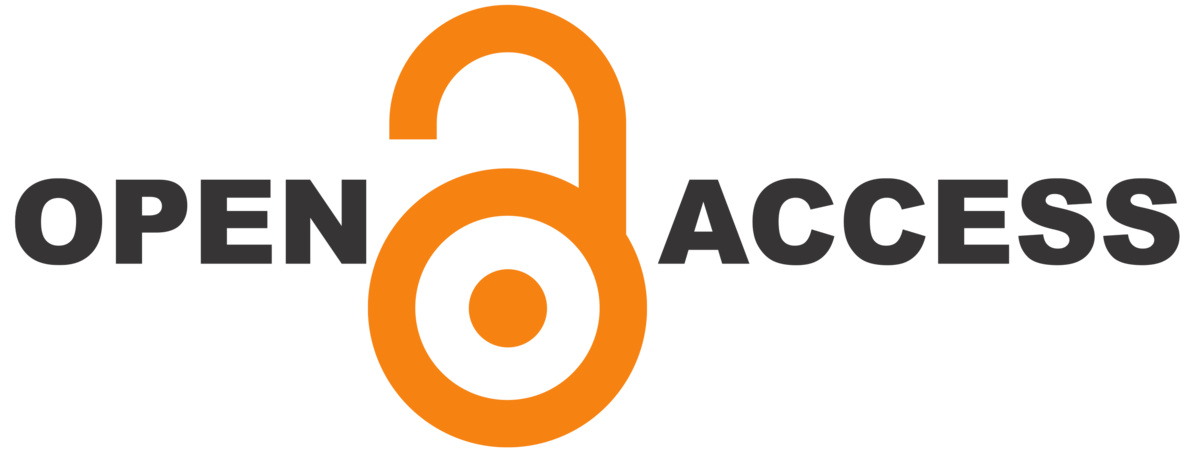BASIC DIGITAL LITERACY – REQUIREMENTS AND ELEMENTS
DOI:
https://doi.org/10.22481/praxisedu.v16i42.7354Keywords:
Digital, Digital literacy, Competences, Digital inclusionAbstract
Participation in society requires not only literary and mathematical basic education but also basic digital literacy (COULDRY & HEPP, 2016; BMBF & KMK, 2016). Current research indicates that low literary and low digital competences are linked (Wolf & Koppel, 2017; BUDDEBERG, 2019). 6.2 million adults with low literality live in Germany (GROTLÜSCHEN et al., 2019). These people may be able to write and understand words or simple sentences when reading, but neither longer sentences nor coherent texts. However, this results in a considerable risk of exclusion from participation in various areas of life (work, finance, housing, informed decision) (BUDDEBERG, 2019). Due to technological developments, people with a low level of digital literacy are systematically (partially) excluded from participation in society in most parts of the world. This leads to the question of what it is that defines digital literacy in order not to be excluded from society because of low digital literacy. In this article we discuss what digital literacy is - including the concept of competence - and what elements basic digital literacy encompasses.
Downloads
References
BARTON, D. and HAMILTON, M. ‘Literacy practices’ in Barton, D., Hamilton, M. and Ivanič, R. (eds) Situated Literacies: reading and writing in context, London, Routledge, pp. 10–11. 2000.
BAWDEN, D., Origins and Concepts of Digital Literacy. In: Lankshear, C./Knobel, M., eds. Digital Literacies. Concepts, Policies and Practices. New York: Peter Lang. pp. 17-32. 2008.
BELLMANN, J., Der Pragmatismus als Philosophie von PISA? Zeitschrift für Erziehungswissenschaft. 10(3), 421-438. 2007.
BMBF and KMK, Grundsatzpapier zur Nationalen Dekade für Alphabetisierung und Grundbildung 2016-2026. 2007. [Accessed: 20 February 2020] Available from:
https://www.bmbf.de/files/16-09-07%20Dekadepapier.pdf.
BUDDEBERG, K., Digitale Praktiken und Grundkompetenzen. Alpha-Dekade-Konferenz, Hamburg. 2019.
CARRETERO, S.; VUORIKARI R. and PUNIE, Y., DigComp 2.1: The Digital Competence Framework for Citizens with eight proficiency levels and examples of use. EUR 28558 EN, [Viewed 9 February 2020]. Available from: doi:10.2760/38842. 2017.
COULDRY, N. and HEPP, A., The Mediated Construction of Reality. Cambridge: Polity Press. 2016.
ESHET, Y., Digital literacy: A new terminology framework and its application to the design of meaningful technology-based learning environments. In P. Barker and S. Rebelsky, eds. Proceedings of the World Conference on Educational Multimedia, Hypermedia and Telecommunications, pp. 493-498. Chesapeake VA: AACE. 2002. [Viewed 30 November 2007]. Available from: http://infosoc.haifa.ac.il/DigitalLiteracyEshet.doc.
EUROPEAN COMMISSION, Key Competences for Lifelong Learning. European Reference Framework. 2007. [Viewed 20 February 2020]. Available from:
https://www.erasmusplus.org.uk/file/272/download.
EUROPEAN COMMISSION, Education and Training 2020. Improving Policy and Provision for Adult Learning in Europe. 2015.
EUROPEAN COMMISSION, Learning to swim in the Digital Ocean: new DigComp report develops proficiency levels in detail. 2017. [Viewed 8 February 2020]. Available from:
https://ec.europa.eu/jrc/en/science-update/new-digcomp-report-develops-proficiency-levels.
EUROPEAN COMMISSION, DigComp. Being digitally competent – a task for the 21st century citizen. 2020. [Viewed 8 February 2020]. Available from: https://ec.europa.eu/jrc/en/digcomp.
EUROPEAN LITERACY POLICY NETWORK (ELINET) European Declaration of the Right to Literacy. 2016a. [Viewed 4 February 2020]. Available from:
EUROPEAN LITERACY POLICY NETWORK (ELINET), ELINET position paper on Digital Literacy. 2016a [Viewed 4 February 2020]. Available from:
EUROPEAN PARLIAMENT AND EUROPEAN COUNCIL Recommendation of the European Parliament and of the Council of 18 December 2006 on key competences for lifelong learning. 2006. [Viewed 3 February 2020]. Available from:
https://eur-lex.europa.eu/LexUriServ/LexUriServ.do?uri=OJ:L:2006:394:0010:0018:en:PDF.
FEILITZEN, C. von, Medienerziehung – Einige internationale Aspekte, Medien + Erziehung, 1. pp. 49-55. 2002.
GILSTER, P., Digital literacy. New York: Wiley. 1997.
GÖTZKE, M., Digitale Analphabeten. Warum Schüler in Deutschland auf Fake News hereinfallen. 2020. [Viewed 17 February 2020]. Available from:
GRAFE, S., „media literacy“ und „media (Iiteracy) education“ in den USA: ein Brückenschlag über den Atlantik. In H. Moser, P. Grell, and H. Niesyto, eds. Medienbildung und Medienkompetenz: Beiträge zu Schlüsselbegriffen der Medienpädagogik. München: Kopaed. 2011.
GROTLÜSCHEN, A., BUDDEBERG, K., DUTZ, G., HEILMANN, L. and STAMMER, C., LEO 2018 - Leben mit geringer Literalität. Universität Hamburg. 2019.
GROTLÜSCHEN, A.; MALLOWS, D.; REDER, S. and SABATINI, J., “Adults with Low Proficiency in Literacy or Numeracy”, OECD Education Working Papers, No. 131, OECD Publishing, Paris. 2016. [Viewed 9 February 2020]. Available from: http://dx.doi.org/10.1787/5jm0v44bnmnx-en.
HART, A., Introduction: media education in the global village. In: A. Hart, ed. Teaching the Media: international perspectives. London: Lawrence Erlbaum. pp. 1-21. 1998.
HAYLAND, T. Competence, Knowledge and Education. Journal of Philosophy of Education, 27(1), 57-68. 1993.
HELBIG, C. and HOFHUES, S., Leitideen in der medienpädagogischen Erwachsenenbildung: Ein analytischer Blick. MedienPädagogik: Zeitschrift für Theorie und Praxis der Medienbildung. 30(0), 1–17. 2018. [Viewed 9 February 2020]. Available from:
https://doi.org/10.21240/mpaed/30/2018.02.26.X.
HORRIGAN, J. B. Digital readiness: Nearly one-third of Americans lack the skills to use next-generation ‘Internet of things’ applications. 2014 [Viewed 9 February 2020]. Available from:
https://jbhorrigan.weebly.com/uploads/3/0/8/0/30809311/digital_readiness.horrigan.june2014.pdf
HUGGER, K.-U. Medienkompetenz. In U. Sander, F. V. Gross and K.-U. Hugger, eds. Handbuch Medienpädagogik. Wiesbaden: VS Verlag für Sozialwissenschaften. pp. 93-99. 2008.
IORDACHE, C., MARIËN, I. and BAELDEN, D., Developing Digital Skills and Competences: A Quick-Scan Analysis of 13 Digital Literacy Models. Italian Journal of Sociology of Education. 9(1), 6-30. [Viewed 20 February 2020]. Available from: doi: 10.14658/pupj-ijse-2017-1-2. 2017.
JENKINS, H., Confronting the Challenges of Participatory Culture: Media Education for the 21st Century (Occasional paper on digital media and learning). The John D. and Catherine T. MacArthur Foundation. 2006. [Viewed 7 February 2020]. Available from:
https://www.macfound.org/media/article_pdfs/JENKINS_WHITE_PAPER.PDF.
JENKINS, H., Confronting the Challenges of Participatory Culture. London: MIT Press. 2009.
KAHN, R., and KELLNER, D., Oppositional politics and the Internet: A critical/reconstructive approach. Cultural Politics. 1(1), 75-100. 2005.
KAMIN, A.-M. and MEISTER, D. M., Medienpädagogik in Institutionen der Erwachsenen- und Weiterbildung. In D. M. Meister, F. von Gross and U. Sander, eds. Enzyklopädie Erziehungswissenschaft Online. Weilheim/München: Juventa. 2013.
KERRES, M., Mediendidaktik. Konzeption und Entwicklung mediengestützter Lernangebote. München: Oldenbourg. 2013.
KILIAN, L., "Digital Literacy" - Versuch einer Begriffsbestimmung. 2019. [Viewed 2 March 2020]. Available from:
https://wb-web.de/aktuelles/digital-literacy-versuch-einer-begriffsbestimmung.html.
KLUZER S. and PUJOL PRIEGO L., DigComp into Action - Get inspired, make it happen. S. CARRETERO, Y. PUNIE, R. VUORIKARI, M. CABRERA and O’KEEFE, W., eds. JRC Science for Policy Report, EUR 29115 EN, Publications Office of the European Union, Luxembourg, 2018. [Viewed 9 February 2020]. Available from: doi:10.2760/112945.
KOPPEL, I., Entwicklung einer Online-Diagnostik für die Alphabetisierung - Eine Design-Based Research-Studie. Wiesbaden: Springer VS. 2017.
LANKSHEAR, C. and KNOBEL, M. eds., Digital Literacies. Concepts, Policies and Practices. New York. 2008.
LIN, M.-H., CHEN, H.-C. and LIU, K.-S., A Study of the Effects of Digital Learning on Learning Motivation and Learning Outcome. Journal of Mathematics Science and Technology Education. 13(7), 3553–3564. 2017.
LINDE, A., Alphabetisierung, Grundbildung oder Literalität? In A. Grotlüschen and A. Linde, eds. Literalität, Grundbildung oder Lesekompetenz? Beiträge zu einer Theorie-Praxis-Diskussion. 1st edition. München: Waxmann. pp. 90-99. 2006.
MALLOWS, D., A digital inclusion pathway. Blog. EPALE (Electronic Platform for Adult Learning in Europe), ed. 2020. [Viewed 7 February 2020]. Available from:
https://epale.ec.europa.eu/en/blog/digital-inclusion-pathway.
Mari, A., Mobile accounts for nearly half of all banking transactions in Brazil. 2019. [Viewed 7 February 2020] Available from:
https://www.zdnet.com/article/mobile-accounts-for-nearly-half-of-banking-transactions-in-brazil/
MARTIN, A. and GRUDZIECKI, J. DigEuLit: Concepts and Tools for Digital Literacy Development, Innovation in Teaching and Learning in Information and Computer Sciences,5:4, 249-267. 2006.
MARTIN, A., Literacies for the digital age. In A. Martin and D. Madigan eds. Digital literacies for learning. London: Facet Publishing. 2006
MONTOYA, S., Defining Literacy. GAML Fifth Meeting 17-18 October 2018, Hamburg, Germany. UNESCO Institute for Statistics, ed. 2018. [Viewed 17 February 2020]. Available from: http://gaml.uis.unesco.org/wp-content/uploads/sites/2/2018/12/4.6.1_07_4.6-defining-literacy.pdf.
NATIONAL TRAINING STRATEGY. 2019. [Viewed 27 February 2020]. Available from:
https://www.bmbf.de/de/nationale-weiterbildungsstrategie-8853.html.
OECD The Definition and Selection of Key Competencies. Executive Summary. OECD Publishing 2005. [Viewed 7 February 2020]. Available from:
https://www.oecd.org/pisa/35070367.pdf.
OECD Literacy, Numeracy and Problem Solving in Technology-Rich Environments: Framework for the OECD Survey of Adult Skills. OECD Publishing. 2012. [Viewed 7 February 2020]. Available from:
http://dx.doi.org/10.1787/9789264128859-en.
PIETRASS M., Digital Literacies. In B. Bachmair, ed. Medienbildung in neuen Kulturräumen. Wiesbaden: VS Verlag für Sozialwissenschaften. pp. 73-86. 2010.
PIETRASS, M., Medien. In J. Dinkelaker and A. von Hippel, eds. Erwachsenenbildung in Grundbegriffen. Stuttgart: Kohlhammer. pp. 150-157. 2015.
RAMMSTEDT, B. ed., Grundlegende Kompetenzen Erwachsener im internationalen Vergleich. Ergebnisse von PIAAC 2012. Münster: Waxmann. 2013.
REDER, S., Digital Inclusion and Digital Literacy in the United States: A Portrait from PIAAC’s Survey of Adult Skills. 2015. [Viewed 22 January 2020]. Available from:
SCHNEIDER, K., What Does Competence Mean? Psychology, 10, 1938-1958. 2019. https://doi.org/10.4236/psych.2019.1014125.
SELWYN, N., Distrusting educational technology: Critical questions for changing times. New York: Routledge. 2014.
SPANTE, M., SOFKOVA HASHEMI, S., LUNDIN, M. and ALGERS, A., Digital competence and digital literacy in higher education research: Systematic review of concept use, Cogent Education. [Viewed 10 March 2020]. Available from: https://doi.org/10.1080/2331186X.2018.1519143. 2018.
Statista Content & Design, E-Health 2020. [Viewed 22 February 2020]. Available from:
https://content-design.statista.com/ehealth-infographic/.
STREET, B. V., Understanding and defining literacy. Background paper prepared for the Education for All Global Monitoring Report 2006 Literacy for Life. 2005. [Viewed 11 February 2020]. Available from: https://unesdoc.unesco.org/ark:/48223/pf0000146186.
STURM, A. ed., Literales Lernen von Erwachsenen im Kontext neuer Technologien. Münster: Waxmann. 2010.
TREUMANN, K. P., MEISTER, D. M., SANDER, U., BURKATZKI, E., HAGEDORN, J., KÄMMERER, M., WEGENER, C., Medienhandeln Jugendlicher - Mediennutzung und Medienkompetenz. Bielefelder Kompetenzmodell. Wiesbaden: Springer VS. 2007.
THE PAYPERS, Payment Methods Report 2019. Innovations in the way we pay. 2019. [Viewed 20 February 2020]. Available from:
https://www.europeanpaymentscouncil.eu/sites/default/files/inline-files/Payment% 20Methods%20Report%202019%20-%20Innovations%20in%20the%20Way %20We%20Pay.pdf.
TRÖSTER, M. and SCHRADER, J., Alphabetisierung, Grundbildung, Literalität: Begriffe, Konzepte, Perspektiven. In C. Löffler and J. Korfkamp, eds. Handbuch zur Alphabetisierung und Grundbildung Erwachsener. Münster: Waxmann. pp. 42-58. 2016.
UNESCO, The Plurality of literacy and its Implications for Policies and Programmes. 2004. [Viewed 17 February 2020]. Available from: https://unesdoc.unesco.org/ark:/48223/pf0000136246.
UNESCO, Recommendation on adult learning and education 2015. Paris: UNESCO 2016. [Viewed 20 February 2020]. Available from: https://unesdoc.unesco.org/ark:/48223/pf0000245179.
UNESCO Institute for Lifelong Learning, Harnessing the Potential of ICTs for Literacy Teaching and Learning. Effective Literacy and Numeracy Programmes using Radio, TV, Mobile Phones, Tablets, and Computers. Hamburg: UNESCO. 2016. [Viewed 20 February 2020]. Available from: https://unesdoc.unesco.org/ark:/48223/pf0000243981.
UNESCO Institute for Lifelong Learning, 7 UIL Policy Brief 7. Literacy and Numeracy from a Lifelong Learning Perspective. 2017. [Viewed 17 February 2020]. Available from:
https://unesdoc.unesco.org/ark:/48223/pf0000247094.
VÁGVÖLGYI, R.; COLDEA, A.; DRESLER, T.; SCHRADER, J. and NUERK, H.-C., A Review about Functional Illiteracy: Definition, Cognitive, Linguistic and Numerical Aspects. Front. Psychol. 7:1617. 2016. [Viewed 24 February 2020]. Available from: doi:10.3389/fpsyg.2016.01617.
WOLF, K. D.; KOPPEL, I., Digitale Grundbildung: Ziel oder Methode einer chancengleichen Teilhabe in einer mediatisierten Gesellschaft? Wo wir stehen und wo wir hin müssen. In: Magazin Erwachsenenbildung.at. 2017.
Downloads
Published
How to Cite
Issue
Section
License

This work is licensed under a Creative Commons Attribution-ShareAlike 4.0 International License.
Você é livre para:
Compartilhar - copia e redistribui o material em qualquer meio ou formato; Adapte - remixe, transforme e construa a partir do material para qualquer propósito, mesmo comercialmente. Esta licença é aceitável para Obras Culturais Livres. O licenciante não pode revogar essas liberdades, desde que você siga os termos da licença.
Sob os seguintes termos:
Atribuição - você deve dar o crédito apropriado, fornecer um link para a licença e indicar se alguma alteração foi feita. Você pode fazer isso de qualquer maneira razoável, mas não de uma forma que sugira que você ou seu uso seja aprovado pelo licenciante.
Não há restrições adicionais - Você não pode aplicar termos legais ou medidas tecnológicas que restrinjam legalmente outros para fazer qualquer uso permitido pela licença.












